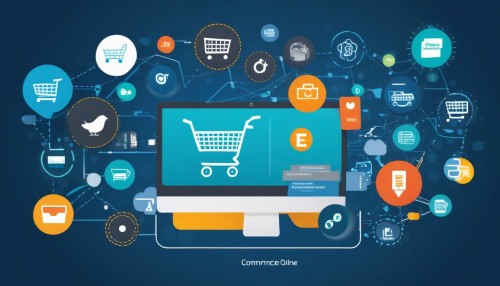E-commerce Enablement: The Engine Powering Your Online Sales
In today’s digital landscape, a robust online presence is no longer optional for businesses. Consumers are increasingly turning to e-commerce for their shopping needs, and businesses must be equipped to meet them there. Enter e-commerce enablement, the driving force behind seamless online transactions and thriving online stores.
What is E-commerce Enablement?
E-commerce enablement encompasses the tools, technologies, and strategies that empower businesses to operate and optimize their online sales channels. It’s like the engine that propels your online store forward, ensuring a smooth and efficient customer journey from browsing to checkout and beyond.
Key Components of E-commerce Enablement:
-
E-commerce platforms: These platforms provide the foundation for your online store, hosting your product catalog, managing orders, and processing payments. Popular options include Shopify, Magento, and WooCommerce.
-
Payment gateways: Securely handling online transactions is crucial, and payment gateways like Stripe and PayPal integrate seamlessly with your platform to process payments efficiently.
-
Marketing automation: Reaching your target audience and driving traffic to your store requires effective marketing strategies. Automation tools like Mailchimp and Klaviyo help you manage email campaigns, social media outreach, and personalized marketing efforts.
-
Inventory management: Keeping track of your stock levels in real-time is essential for avoiding overselling and ensuring customer satisfaction. Inventory management software like Zoho Inventory and Fishbowl streamline stock control and order fulfillment.
-
Fulfillment and logistics: Getting your products from your warehouse to your customers’ doorsteps requires a reliable fulfillment and logistics system. Partnering with fulfillment centers or using dropshipping services can optimize your delivery process.
-
Customer relationship management (CRM): Building strong relationships with your customers is key to repeat business. CRM tools like Salesforce and HubSpot help you manage customer interactions, track purchase history, and personalize communication.
Benefits of E-commerce Enablement:
- Increased efficiency: Automating tasks and streamlining processes free up your time and resources to focus on growing your business.
- Improved customer experience: Providing a seamless and convenient shopping experience leads to higher customer satisfaction and loyalty.
- Boosted sales: Effective e-commerce enablement strategies attract more customers, drive conversions, and ultimately increase your revenue.
- Scalability: As your business grows, your e-commerce enablement tools should be able to scale with you to accommodate increasing demand.
- Data-driven insights: Gaining valuable insights into customer behavior and sales trends allows you to make informed decisions and optimize your online store for success.
E-commerce enablement is not a one-time investment, but rather an ongoing process of adaptation and optimization. As technology evolves and customer expectations change, it’s crucial to stay updated on the latest trends and tools to ensure your online store remains competitive.
Ready to rev up your e-commerce engine? By investing in the right tools and strategies, you can unlock the full potential of your online sales channels and drive your business towards success in the ever-expanding digital marketplace.
Remember, e-commerce enablement is not just about technology it’s about understanding your customers and creating a frictionless shopping experience that keeps them coming back for more.
I hope this detailed article with subheadings has been helpful. Please let me know if you have any other questions!










